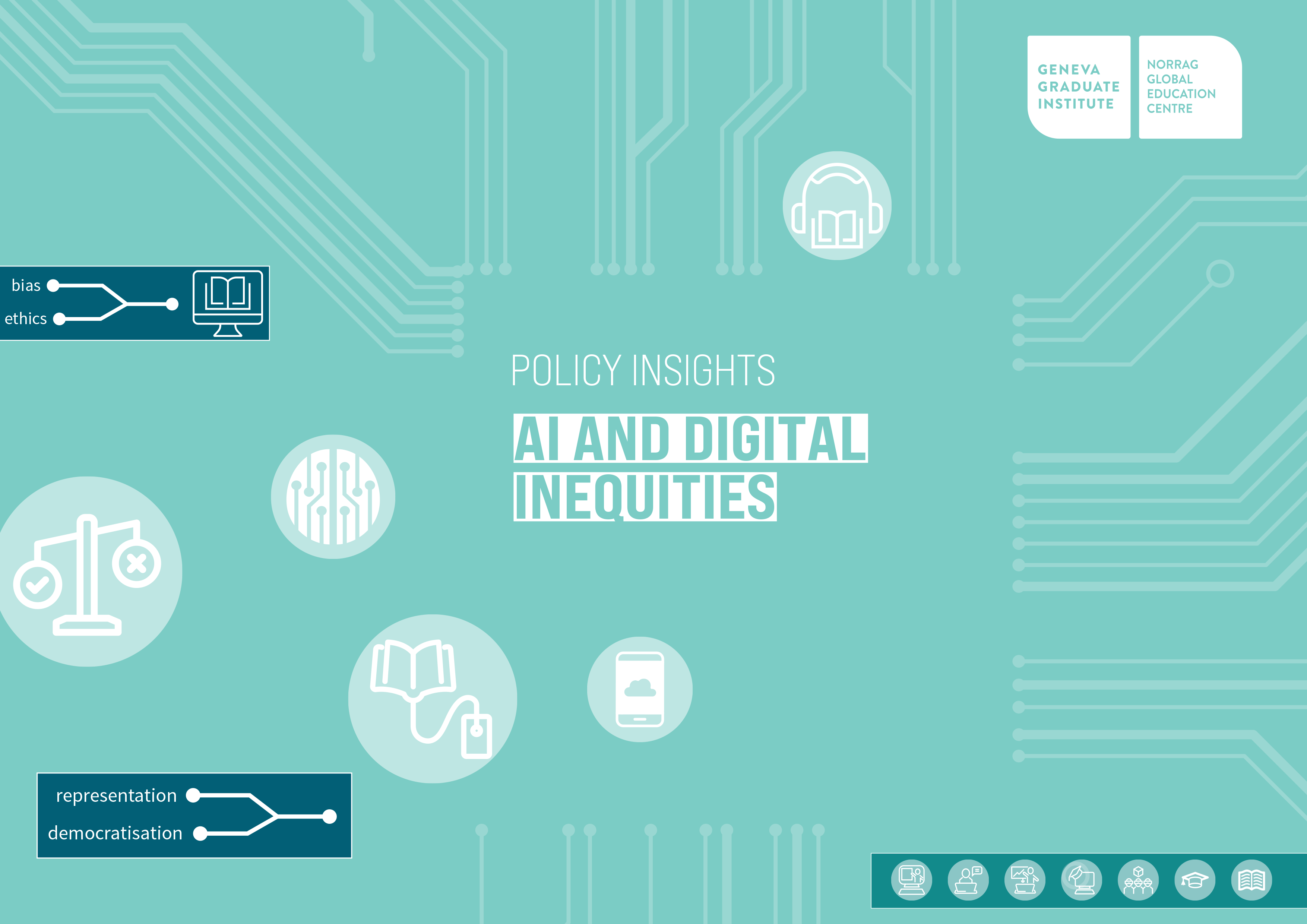The Heart in the Matter: Education that Forges an Equitable and Diverse AI Future
In this blogpost, which was previously published in NORRAG’s 4th Policy Insights publication on “AI and Digital Inequalities”, Carolina Earle argues for participatory, feminist, innovative methods to achieve a more equitable, inclusive, diverse and just AI future through and for education.
The inventors, owners and beneficiaries of AI have emerged from predominantly WEIRD (Western/White, educated/English-speaking, industrialised, rich, democratic) societies. Further, while one in three companies today use AI in their operations, women only make up 26% of the global AI workforce and 18% of AI C-suite executives. Systemic historic, gendered, racialised, class and location-based disparities structure the development of AI. An impending “AI divide” threatens to disadvantage marginalised communities and concentrate power and control in the hands of Big Tech.
The exclusion of diverse peoples from AI discourse, research, design and development increases the likelihood that AI—and AI in education—will also be developed and deployed in exclusionary and marginalising ways.
Conversely, systemic practices of digital equity and inclusion throughout AI ecosystems ensure the worst harms may yet be controlled and designed against. The EQUALS-EU project demonstrates the positive impact of participatory, feminist, innovative methods to achieve a more equitable, inclusive, diverse and just AI future through and for education.
The EQUALS-EU Project
The EU Horizon 2020–funded, multisectoral and multistakeholder EQUALS-EU project was designed to forge gender-equitable social innovation ecosystems and systemically elevate gender equity inventors and leaders.
The project first mapped gender equity stakeholders in social innovation ecosystems. Subsequently, unique, co-created and localised digital equity and inclusion innovation camps and hackathons were held in 19 Countries. Winning teams from each country’s hackathon/innovation camp then attended an incubator programme and an international 3-week digital equity and inclusion capacity-building summer school.
Feminism and women’s leadership in international law and policy
Over two and a half days, over 30 women and gender-minority people came together in Switzerland’s EQUALS-EU Innovation Camp to ideate novel digital equity and inclusion solutions. They were hosted and fed free of charge, an essential incentivising and equity choice. After the innovation camp, of the 29 survey respondents, 69% stated they would definitely recommend the experience and 90% felt they had developed novel insights into digital inclusion.
The winners of our 2022 innovation camp ideated an AI-based solution to tackle revenge porn. One affirmed that “our idea was generated by an empowering environment,” and said “I learnt that I am capable of thinking about solutions to complex problems…I had no idea I had an entrepreneurial vein in me!”
With the innovation camp as a key example, over the 3 years of the EQUALS-EU project, best practices for equitable and inclusive AI and education policy have emerged.
Policymakers and educators should
- Test and embed innovative pedagogical methods such as innovation camps. Amid rapid advancements in the digital world, complex and cutting-edge ideas can be taught, enjoyed and owned by new learners
Key takeaways:
- Test and embed innovative pedagogical methods such as innovation camps.
- Ensure innovation processes are critical and participatory and tackle root structural challenges.
- Foster diverse and critical thought from an equitable, human-centred perspective.
- Centre psychic and emotional safety in innovative ideation programmes.
- Design creative, inclusive outreach and recruitment processes that meaningfully engage and make space for historically marginalised peoples.
About the Author:
Carolina Earle, Gender Centre, Geneva, Graduate Institute
EQUALS-EU: Europe’s Regional Partnership for Gender Equality in the Digital Age, Switzerland

